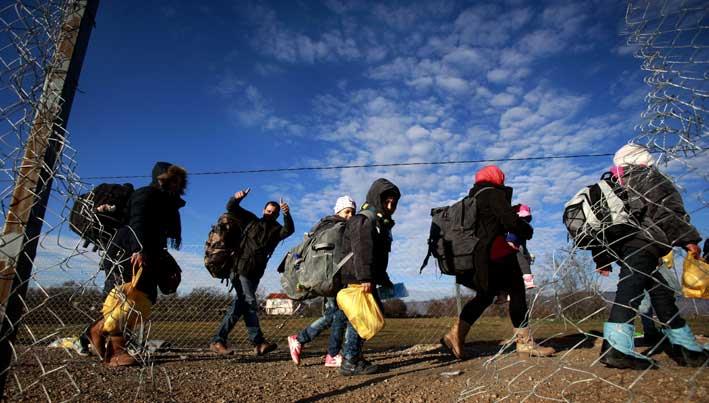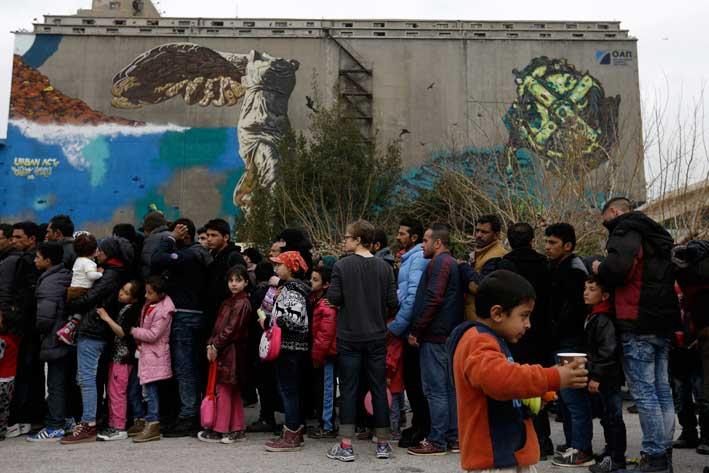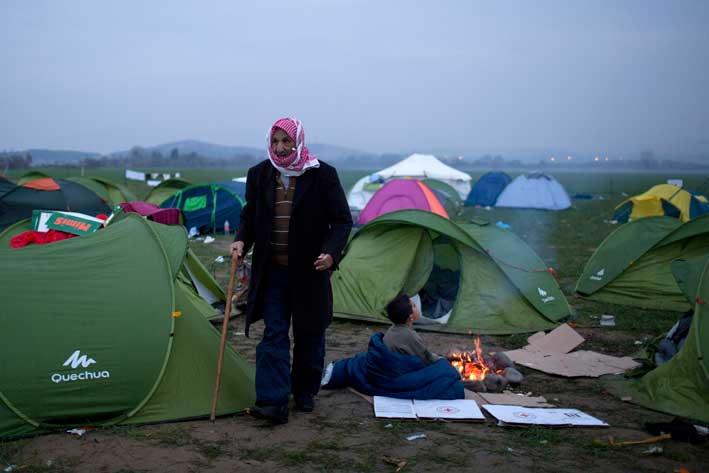Dr Metsola, you have been awarded MEP of the Year for the second time for your work on Justice and Civil Liberties. This means that you are a leader in the EU Parliament in this particular field. Concretely, what action do you believe needs to be taken in the near future on the migration crisis?
My argument has always been that Europe's whole rationale needs to shift from only finding emergency solutions to emergency situations, to looking at the situation from a long term, all-encompassing perspective
For the past year, I have worked on a report that aims to set out the political direction of the European Parliament on this important issue. We managed to find a common line between the major political groups. In the report, we call for a number of things including, amongst others for support to third countries to address the root causes of migration and for other States outside the EU, to build up their asylum and law enforcement capacities so that people in need of protection can find it in third countries and are not forced to risk coming to Europe. We have also called for a permanent search and rescue operation in the Mediterranean to save lives at sea and for a binding resettlement system that would see those in need of protection brought directly from third countries.
Essentially we are saying that there is a need to protect those in need of help, but other States outside of Europe must also play their part and we should help them to do that. Yes, everyone has the right to seek protection and that right must be respected, but we also need to underline that the right to protection is not an inalienable right to migration. The two are distinct even if related. So while everyone's rights and due process must be respected, not everyone arriving in Europe is in need of protection and those who have no claim to protection must be returned safely and swiftly.

Dr Metsola, following the recent attacks in Brussels and Turkey, do you believe that more security measures need to be taken with regards to the registration and acceptance of refugees?
Any pressure at Europe's borders causes legitimate security fears - it would be naive and irresponsible to deny this fact as some are doing. Yes, we absolutely need to do more to strengthen border management and all Member States need to fulfil their obligations at the borders. This is crucial. It is only because of stronger management of the external borders that we have no internal border controls. One cannot exist without the other.
But this does not mean that refugees and terrorists should be equated with each other. Refugees by their very nature are people running away from terror, war and persecution. Blaming refugees is an overly simplistic argument, in reality the issue is far more complex. The truth is that there are very strict criteria that establish refugees and the status is only given to those who are truly in need of protection.
But that does not mean that we do not need to do more in terms of security both at the borders and also within Europe. It is clear that an aging intelligence and security apparatus exists that needs updating. We need a stronger Europol. We need a Passenger Name Record System that allows authorities to access information of people using aircraft in Europe; We need to come down harder on radicalisation and hate preachers and we need to overcome legal obstacles to cancelling or revoking the passports of foreign fighters who travel to Syria and other conflict zones before coming back to Europe to radicalise and recruit citizens. These people do not deserve the protection their EU passport gives to them.

Dr Metsola, speaking to those who believe that Europe should just shut its borders, what would you have to say?
Schengen is not only vital in economic and political terms, but it is crucial for the security of Europe. Member States must do all they can to preserve the EU's Schengen Zone. But we must understand that the abolition of internal border controls in Schengen has to go hand‑in‑hand with strengthening external borders and exchanging information. This is simply pre-requisite if we are to save our celebrated Schengen Zone. We need Member States to live up to their obligations at the external borders.

Do you agree with the recent Turkey deal? What political repercussions could this have?
The process with Turkey is not something that can be solved overnight, we have taken many years to get to this point. What we know for sure is that the number of people leaving Turkey's shores on unseaworthy boats needs to be reduced and lives no longer lost at sea.
In our report we call for the EU-Turkey Joint Action Plan to be implemented by all sides and for Turkey to fulfil its commitments to stemming irregular flows of migrants.
On the latest proposal that would see all migrants arriving in Greece from Turkey sent back and then for each Syrian returned, a Syrian in Turkey would be resettled in the EU, we have been assured that the deal is legal in that all rights under international and European law will be guaranteed. There will be individual interviews, individual assessments and rights of appeal for those seeking protection. This is not about blanket or automatic returns. So while new irregular migrants will be returned to Turkey, the principle of non-refoulement will be respected – it is explicitly referred to in the deal.
We need to make sure that any deal destroys the traffickers' business model and not simply pushes the problem down the road from Turkey to Libya.